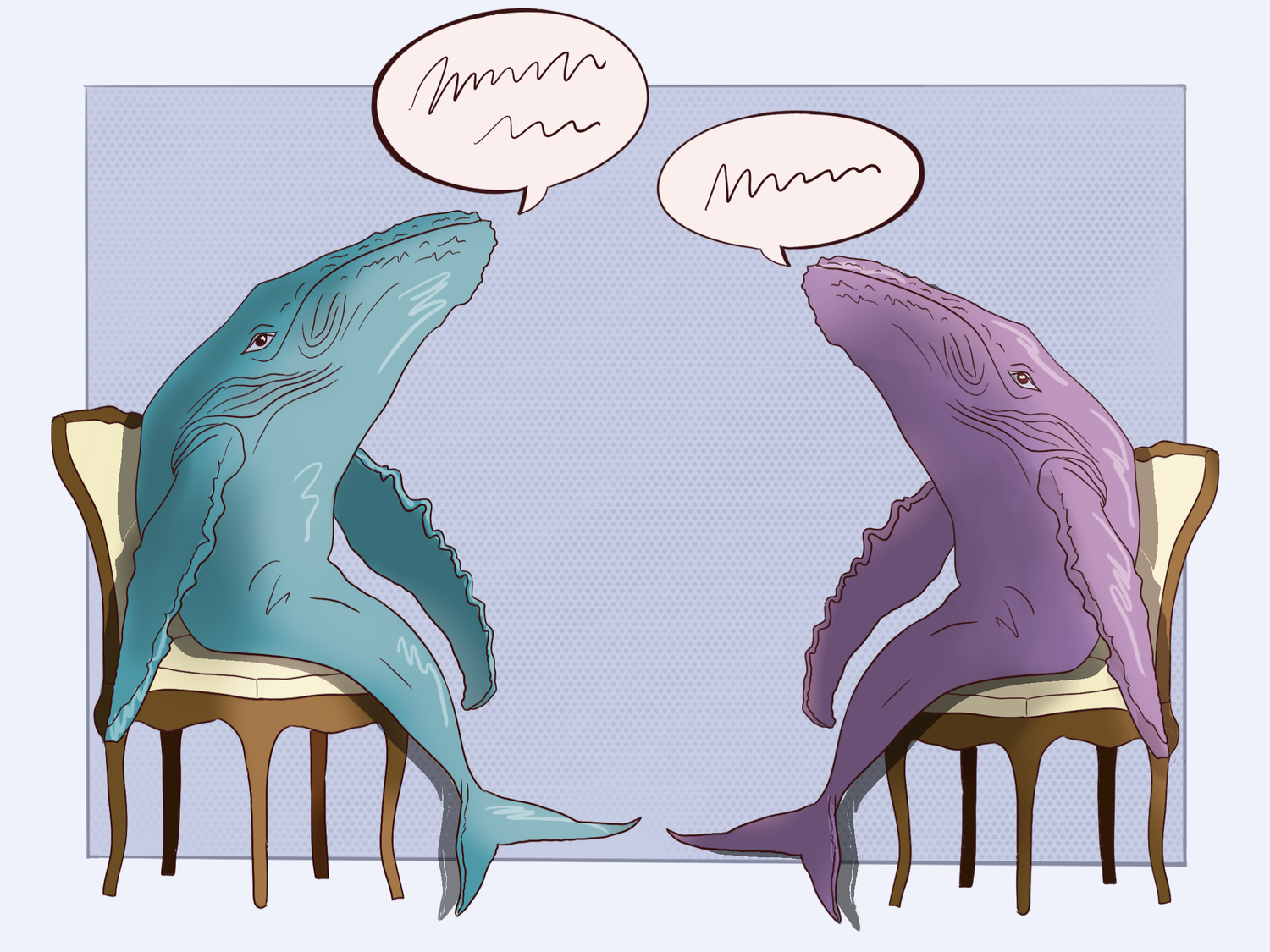Decoding the communication of whales with advanced machine learning and state-of-the-art robotics
Humanity is at a critical turning point. To survive, we must reshape our relationship with nature. Project CETI aims to deepen our ties to animals by seeking to understand sperm whale communication – and eventually talk back
Relevant Stats
Paragraph introducing any relevant stats.

Project
Description
Problem
Humanity is facing the collapse of entire ecosystems, and the biodiversity of our planet is being eroded at unprecedented rates. It is a pivotal time for us to reshape how we co-exist in and with nature. Recent advances in engineering, artificial intelligence, biology, and linguistics have brought us closer than ever to understanding the communication of other animals. The sperm whale is the animal with the largest brain, and like humans, it has a complex communication system and lives in tightly knit family groups. These whales also help keep carbon out of the atmosphere, support our oxygen supply, and increase marine life. We now have the tools to identify and translate the deep structure of their communicative patterns and to kickstart the path towards meaningful dialogue with another species. By illustrating whales’ incredible intelligence and advocating for legislation, we can accelerate conservation efforts.
Big Idea
Project CETI (Cetacean Translation Initiative) is bringing together a unique team of accomplished scientists and technologists to study the communication of sperm whales. Recent breakthroughs in AI and unsupervised machine translation have, for the first time, allowed researchers to interpret and translate between two unknown human languages without needing a “Rosetta Stone” or parallel structure. Project CETI will build on these discoveries to provide the first-ever blueprint of another animal’s language. Over the next five years, Project CETI will seek to understand sperm whales on a level never achieved before. Using advanced machine learning and state-of-the-art non-invasive robotics, the team will listen to and translate the communication of these majestic creatures and perhaps even talk back.
Plan
Project CETI aims to help us connect with and better understand the animals we share the planet with, while highlighting the critical role biodiversity plays in our interwoven global ecosystem. The multi-disciplinary team will tackle this groundbreaking work in four phases. First they will develop non-invasive and non-destructive “delicate” robotics technologies. Next, they will deploy this technology to listen to a population of sperm whales off the coast of Dominica in the Caribbean, where Dr. Shane Gero, Project CETI’s whale biology lead has been gathering data on the sounds, social lives, and behaviors of sperm whales. Once data and context information is collected, scientists will decode using cutting-edge machine learning, and linguistics methodologies. Project CETI will also launch a public portal, and through partners like the National Geographic Society will engage a global community in the deep wonder of our attempt of meaningful dialogue with a non-human species.
Why will this succeed?
Bringing together the world’s experts in sperm whale field biology, robotics engineering, machine learning, linguistics, and public outreach, the Project CETI team will be an extraordinary and collaborative gathering of experience and expertise. Working alongside Project lead David Gruber will be a handful of subject matter experts from Harvard, MIT, Imperial College, University of Haifa, UC Berkeley, and the Institute for Scientific Interchange; including robotics expert Daniela Rus, Shafi Goldwasser who is credited with revolutionizing cryptography science and Twitter’s Michael Bronstein an expert in deep machine learning. Gruber’s team has also already applied deep machine learning techniques to sperm whale clicks with 99.5% accuracy in pulling Sperm whale clicks out of noise, 97.5% accuracy in categorizing 23 types of click patterns, and 95.3% accuracy in recognizing whale dialects. These results demonstrate AI’s capability to recognize patterns in this aquatic Morse code. The Project CETI scientists will combine these insights with findings from The Dominica Sperm Whale Project, a highly-respected study into the social lives, dialects, and genetic relationships of 30 families of sperm whales.











.jpg)








.jpg)

